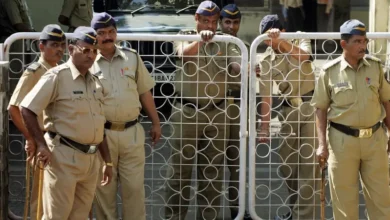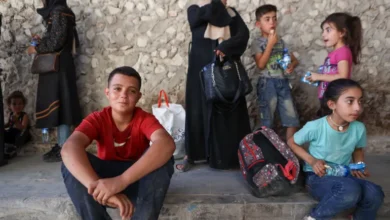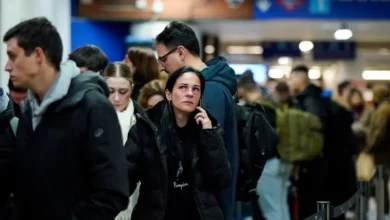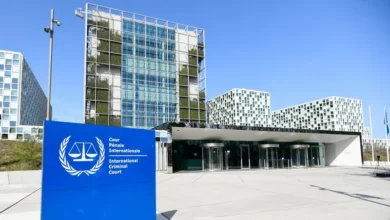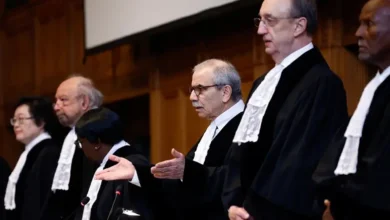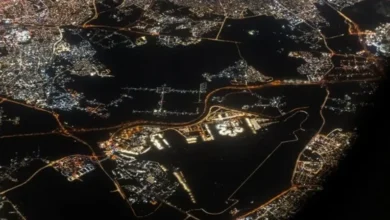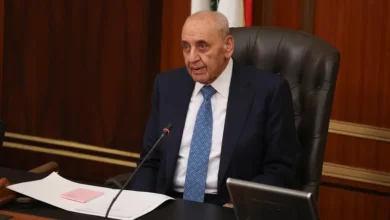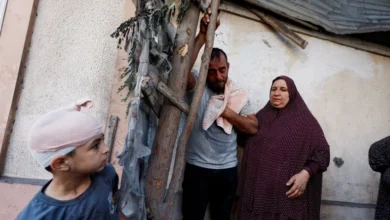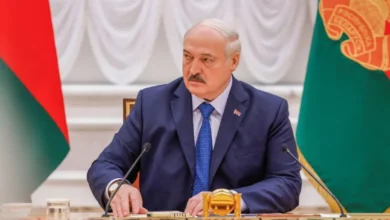We ‘die slowly every single day’: What survival means for one Gaza family

Abdulrahman and his family were among the many Palestinians travelling south along Salah al-Din Road – the main highway linking Gaza’s north and south – when a huge explosion struck just a few hundred metres from where they were.
On Friday October 13, as families headed south following an Israeli evacuation order and promises of safe movement, at least 70 people were killed in air attacks on vehicles leaving Gaza City.
‘We could feel the floors dance’
The nights – illuminated by the path of missiles and light from explosions – were accompanied by the screams of families huddled in the school.
“We could feel the floor dance,” Abdulrahman recalled.
Few could sleep. During rare moments of relative silence, the Ammars sat together and prayed for safety before joining their sleep-deprived companions to wait for sunrise.
The Ammar family had been among the first to flee for Gaza’s south. But after a few days at the shelter, fearing that the bombing was getting closer and lacking essential amenities, they felt they had no option but to return to their home in Gaza City.
“We had not been left with much choice,” Abdulrahman said of his family’s decision.
The day they left, Abdulrahman and his family could not find a taxi, so they walked for almost 6km (3.7 miles) towards their home. “[We were] hugging our luggage and following a zigzag pattern so that we reduce the possibility of being harmed by any of the nearby air strikes,” Abdulrahman recalled.
Eventually, they found a taxi and the family of eight, along with the clothing and the few other belongings they had with them, climbed into the vehicle.
They rode in silence, praying and staring out the windows at the scenes of destruction and at flattened neighbourhoods to the sounds of air sirens and warplanes.
All the while, the bombs rained down “everywhere around us”, Abdulrahman said.
‘What if we were hit?’
Abdulrahman’s father, Suliman, who was sitting in the front seat, then spoke up, voicing what everyone else feared to say out loud: “What if we were hit by an air strike, just like what happened to the people on the truck the other day?”
His wife and children were silent.
Eventually, Walaa, who is in her mid-20s, said: “Then we would all die. It is that simple.”
“It is for the better, if you all know, right? No hunger, no thirst, and more importantly – no fear.
“We will have eternal peace – peace that makes us rest from all that is making us suffer and die slowly every single day,” she said.
As Israel carries out its war on Gaza following an October 7 attack by Hamas fighters in the country’s south – that killed at least 1,405 people – at least 5,791 Palestinians in the Gaza Strip have been killed, with more than half the victims being women and children.
About 1 million Palestinians have been displaced in the territory of 2.3 million.
Abdulrahman says his family’s displacement – which evokes his ancestors’ expulsion in 1948 during what Palestinians refer to as the Nakba, or catastrophe, from Jaffa – has taught them a lesson about Israel’s intentions.
“If Israel wants us to be safe, it shall return us to where we were forcibly displaced the first time, from our home in Jaffa,” he said.
“But I doubt that it wants that,” Abdulrahman reflected. “It wants us in eternal exile and terrorised till the very end of our lives.”

